Author: Kent Larsen
-
Literary DCGD #2: Praise ye the Lord
The second Doctrine and Covenants lesson makes the point that this modern scripture talks and teaches of Christ. That focus was easy to find in many Mormon poems and hymns, but the following poem has the advantage of talking about the Lord for what He has done for the Latter-day Church. Eliza R. Snow probably…
-
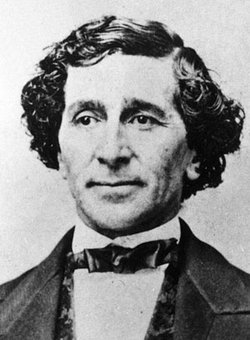
Literary Lorenzo Snow #1: Provo Sunday School
I love the first lesson in the Lorenzo Snow manual. It seems like Snow’s love of learning is second to none among latter-day Prophets. And his statements about learning are wonderful: “Though we may now neglect to improve our time, to brighten up our intellectual faculties, we shall be obliged to improve them sometime. We…
-
Vote for Mormon of the Year 2012!
This post opens the voting for Mormon of the Year. Votes will be taken until midnight Eastern Time on Monday, January 7th, at which time the voting will close. The voting mechanism will attempt to restrict votes to one per person. The order of the choices is set at random, and is different each time…
-
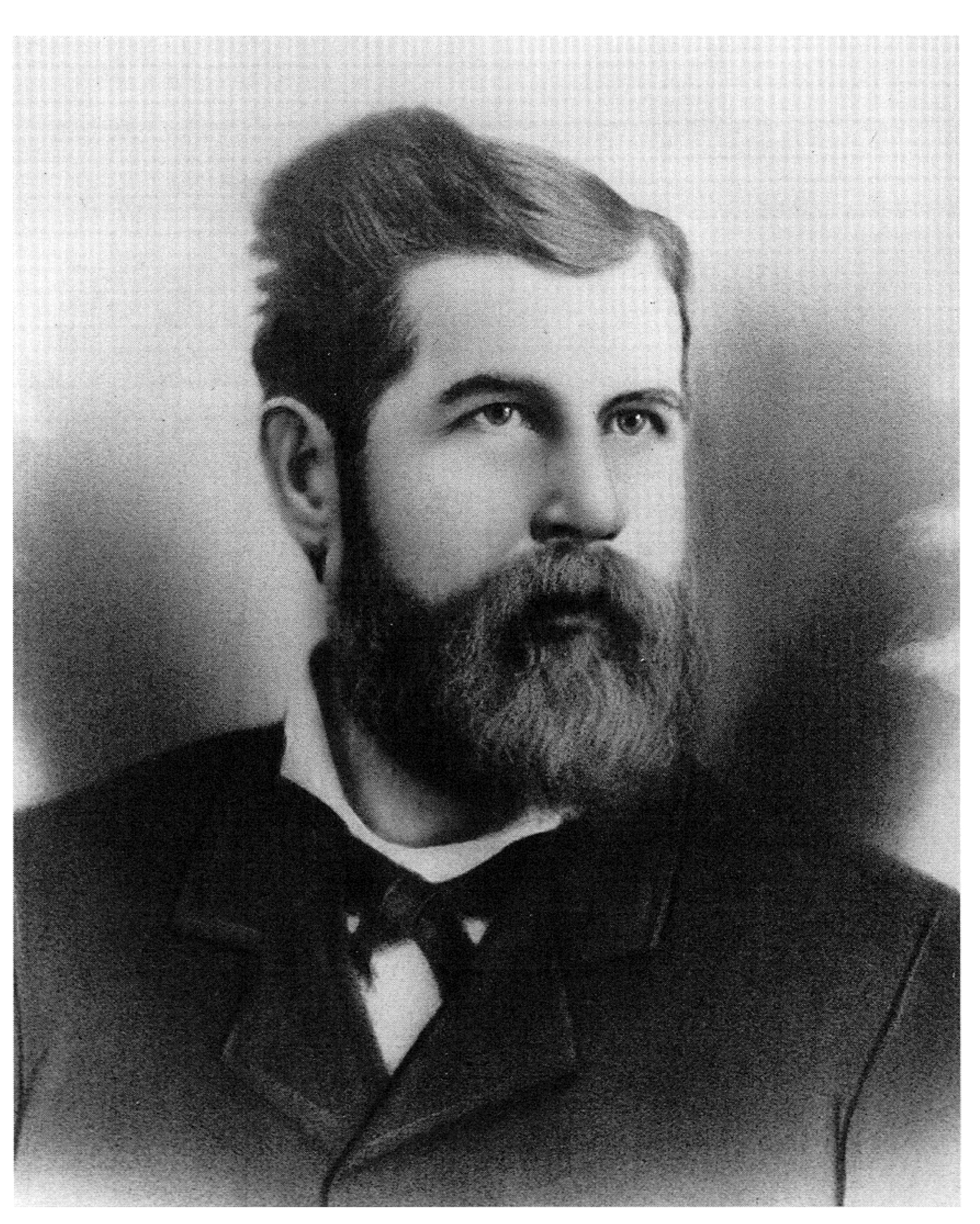
Literary DCGD #1: On the Latter-day Dispensation
The initial lesson in the Doctrine and Covenants and Church History course of study points out that the revelations found in the text are meant for our time and cover our dispensation, while the history presented is the history of our people, as opposed to those who lived aeons ago. This course should, therefore, be…
-
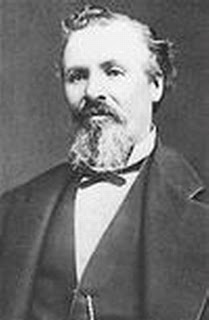
Glory to God; Peace on Earth
Some time ago while singing Christmas carols at a non-Mormon event, I suggested that the group sing “Far, Far Away on Judea’s Plains.” I was greeted with blank stares and questions. “What song?” “Never heard of it.” It turns out I was so immersed in Mormon culture (I still am to a large degree) that…
-
Why Literary Gospel Doctrine Lesson Posts
For the past year each Monday afternoon my “Literary BMGD” posts have appeared each Monday — perhaps confusing some readers who have wondered exactly what these posts were all about. And those who clicked on them to read what they had may have been surprised to find that they were… poetry. What exactly is BMGD…
-
Nominate the 2012 Mormon of the Year
Its that time of year again. The media will soon start reviewing the important news stories of the year, Time will soon select its Person of the Year (Mitt Romney has been nominated); so we should get busy selecting the Mormon of the Year. For those who don’t remember, T&S selected Mitt Romney as the Mormon…
-
Literary BMGD #48: My Friends and I
The final lesson for the Book of Mormon Gospel Doctrine class covers Moroni 7-10, the final Book of Mormon prophet’s closing advice to readers, including teachings about faith, hope and charity, the conditions of salvation, spiritual gifts, the role of the Holy Ghost, and how to judge between good and evil. The motivation for this…
-
The Shocks We Will Face After This Life
Several weeks ago, a friend mentioned in a conversation about the gospel that after this life we would know the truth about all things. It then occurred to me that a lot of people are going to be, or already have been, shocked by how wrong they were about their views of life, the universe,…
-
Literary BMGD #47: While of these emblems we partake
Including the sacrament prayers in Moroni 4, and indeed all the instructions in Moroni 2 through 6, seem almost like an afterthought to the Book of Mormon—kind of like “Oh, yeah, you’ll need to know this stuff too.” And these instructions only make sense if they are written for us today, for Moroni himself is…
-
Elected Mormon Politicians
The recent elections included some changes in the Mormons holding elective office around the country, but overall not a lot of change. We still have about the same number of Mormons in the U.S. Congress. The areas where a lot of Mormons are in state government still have a lot in state government. But some…
-
Literary BMGD #46: Trials and Happiness
I often wonder how Mormon managed to keep it together. He saw his own civilization decaying around him, perhaps while he was in the midst of abridging the record of the Jaredites, summarizing the details of their decline and destruction, which was so similar to his own. Yet despite this, in the final chapters of…
-
Literary BMGD #45: Song of the Exiled Saints
The Book of Ether contains the story of the Jaredites — a story that parallels the overall history told in the Book of Mormon. And, as I’ve observed here before, the story also is somewhat similar to that of the early Saints, who travel to a foreign land at the direction of the Lord, seeking…
-
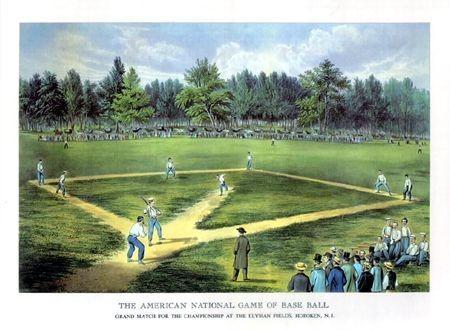
Joseph Smith and Baseball: The Evidence
“In the 1830s, on the western frontier of Missouri, ball was the favorite sport of Joseph Smith, founder of a new religious sect called the Mormons[1. Burns, Ken, and Lynn Novick. Baseball: A Film by Ken Burns. PBS, 2010.].” A couple of years ago I received as a Christmas present the Baseball documentary by Ken…
-
Quick Mormon Election Results
Here are the results so far for Mormon candidates running for the U.S. Congress. I will have complete results for all races in the next few days, as they become available. Please let us know your thoughts and about any aspects of the elections that you though important:
-
Literary BMGD #44: The Book of Mormon
As Mormon completes his own record in Mormon chapters 7, 8 and 9, he prophesies about the role that the Nephite records will have in the future, saying that the record will come forth in the latter days, in a day of great wickedness, and urging readers of the book to believe in Christ. This…
-

Mormons in the Running
With the election approaching on Tuesday, I’ve been racing to put together a rundown of the candidates who are Mormon around the country. I know that Kay Atkinson King has done an extensive series on BCC going over the congressional elections, but I think that my summary below has a few additional pieces of information,…
-
Literary BMGD #43: Christ’s Ministry to the Nephites, part III
Mormon, the book in the Book of Mormon written by its compiler, is perhaps the most depressing of the book of scripture. It might be subtitled ‘the Decline and Fall of Nephite Civilization.’ And its author was all but hopeless in his assessment. But unlike Gibbon’s perhaps better known description of decline and fall, Mormon…
-
Frequently in the NFL, Barely in the NBA
I”m late in updating my list of Mormons in professional football. Its not because last year’s post was hijacked by those talking about playing sports on Sunday. But it may be in part because I’ve focused more on baseball recently. But, I’ve finally got my act together, and here’s the current list, along with the…
-
Literary BMGD #42: The Gospel
In the final minutes of his visit with the Nephites (3 Nephi 27), Christ makes clear that the church established for the Nephites must bear his name and teach his gospel. He even specifies elements of his gospel: the atonement and resurrection, the final judgment, repentance, baptism, faith in Jesus Christ, the gift of the…
-

Mormon of the Year candidates from this past summer?
In May I asked readers here to look at those who had made the news during the first part of the year and suggest who among them should be considered for “Mormon of the Year.” The theory is that looking at the question periodically during the year means that we will include those who have…
-
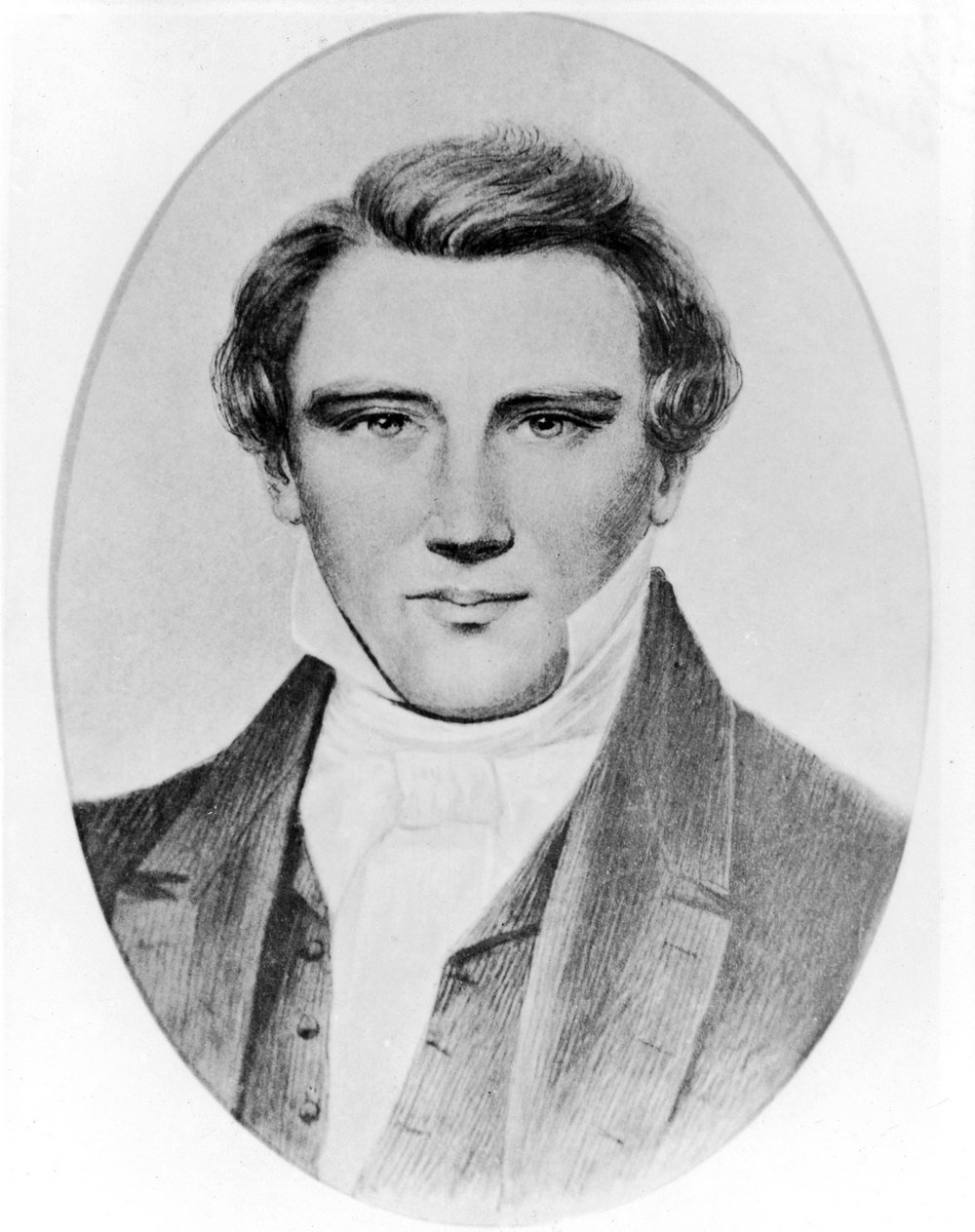
Literary BMGD #41: A Vision
Poetry by Joseph Smith? That is certainly not what Joseph Smith is known for, nor is it often claimed that he was a poet in all the writing and studies made about him. [Orson F. Whitney is the exception that comes to mind.] But the following poem, when published in 1843, carried his byline when…
-

New Progress for Mormon Studies
The University of Virginia today announced today a $3 million anonymous donation to establish the Richard Lyman Bushman Chair of Mormon Studies in the University’s Department of Religious Studies. The chair is still subject to approval by the University’s Board of Visitors, after which a search committee will look for candidates for the inaugural appointment,…
-
Potential Effects of the Missionary Age Announcement
If you had any doubt about the impact of the announcement yesterday that missionary service for men and women can begin earlier, just read the reactions in the bloggernacle, on facebook and twitter and even in major newspapers. The largest of the blogs in the bloggernacle have already weighed in on the change… multiple times……
-
Is this the first bestseller by a Mormon not written in English?
A few weeks ago a book by the Brazilian language entrepreneur and LDS Church member Carlos “Wizard” Martins, who started the massive Wizard Language Schools chain (similar to Berlitz), reached the bestseller lists in Brazil. I’m fairly sure that the book Desperte o milionário que há em você (Awake the Millionaire Inside of You) is…
-
Literary BMGD #40: The Gathering
Gospel Doctrine lesson 40 for the Book of Mormon talks about a subject that isn’t explored as often in Mormonism today: The Gathering. In Joseph Smith’s day it not only mean the gathering, literal and spiritual, of the House of Israel, but it also meant the gathering of Mormon converts to the ‘center place’ of…
-
Holding Steady: Forbes List Update
Feel like you’re treading water financially? I don’t suppose it will help to know that the wealth of the richest Mormons is also not growing? Perhaps not, but my analysis shows this to be the case. To be honest it’s hard to even think that they are put out!
-
Literary BMGD #39: Phelps’ The Lord’s Prayer
In the middle of his visit to the Nephites, Christ leaves the people for the night and then returns the following day (as recounted in 3 Nephi 17-19). Before he leaves, and then again after he returns the next day, Christ teaches the Nephites about prayer, and provides them with examples of prayers—one of which…
-
Literary BMGD #38: Christ’s Ministry to the Nephites, part 2
Following the destruction that accompanied Christ’s crucifixion, the Nephites and Lamanites didn’t see relief, or light, until his resurrection and visit to the Americas. This story, found in 3 Nephi 11, is the culmination of the Book of Mormon narrative, the central meaning of the book. His arrival is also the central point of Parley…
-
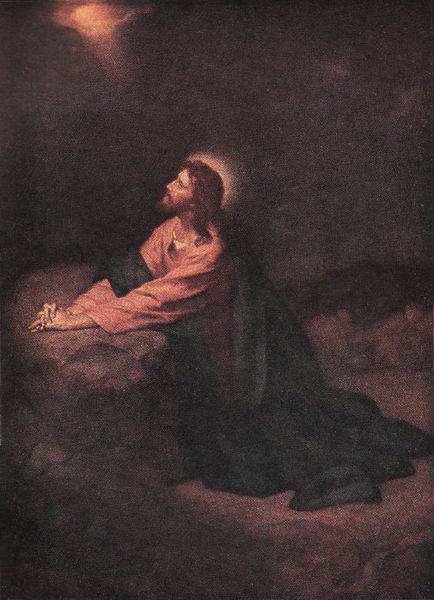
Cálice (Let this cup pass from me)
Over the past year or so, I have become increasingly enamored of a popular Brazilian song, one that today makes me tear up simply from hearing the opening chords. On the surface, at least, the song, “Cálice” (Chalice), is quite religious. And its refrain is simple: Father, let this cup pass from me Father, let…
